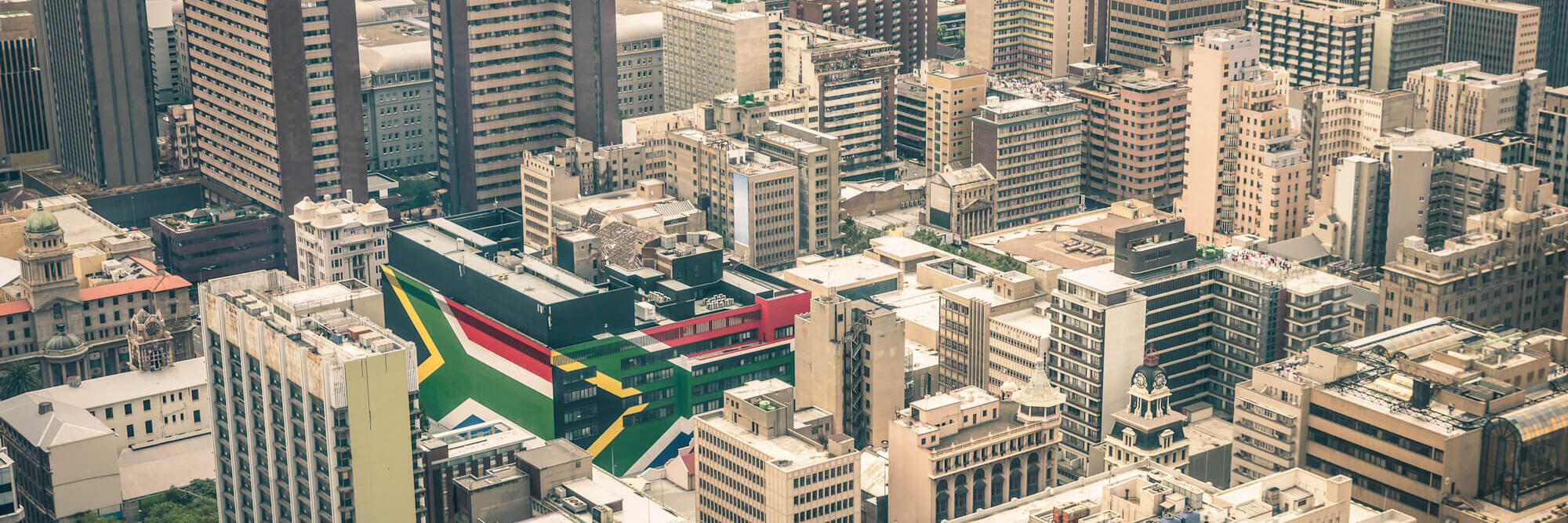After living in global capitals such as London, Paris and Amsterdam, Heloise Van Beerschoten-Roschlau chose to settle in Johannesburg. An entrepreneurial spirit able to recognise Africa's deep market potential, Heloise started an import company in 1996.
Despite struggling with local inefficiencies, South Africa has nurtured Heloise's creativity and sense of humour.
Read more about South Africa in the Expat Arrivals South Africa guide or read about other expat experiences in South Africa.
About Heloise
Q: Where are you originally from?
A: The Netherlands
Q: Where are you living now?
A: Johannesburg, South Africa
Q: When did you move to South Africa?
A: 1996
Q: Why did you move to South Africa; what do you do in Johannesburg?
A: I liked South Africa and worked for Vodafone in the UK. Vodacom in South Africa was just starting out and cellular phones offered a huge business potential. I started my own import company, selling cellphones from South Africa to smaller networks in Africa.
Living in South Africa
Q: What do you enjoy most about Johannesburg? How would you rate the quality of life in South Africa compared to the Netherlands?
A: I enjoy the space, the people and the opportunities.
Q: Are there any negatives to life in South Africa? What do you miss most about home?
A: The authorities are a mess. For instance; obtaining a driver's licence is difficult, electricity is often not working, the water department has regularly messed up our accounts and the roads and the public transport are very bad. We have 20 staff and the lower income earners suffer the most from local inefficiencies.
Q: What are the biggest adjustments you had to make when settling into expat life in South Africa?
A: My patience, creativity and sense of humour have definitely improved.
Q: What’s the cost of living in South Africa compared to the Netherlands? Is anything particularly cheap or expensive in South Africa?
A: Labour is much cheaper in South Africa.
Q: Do you need to own a car in South Africa?
A: Yes, having your own car is necessary.
Q: How would you rate the healthcare in Johannesburg? Have you had any particularly good or bad experiences with regards to South Africa doctors and hospitals?
A: The healthcare is very poor in some of the bigger Johannesburg hospitals, mainly due to a lack of funds from the government. Nursing in the private hospitals is often contracted out, which is not ideal. I have filed several complaints about the level of care in two private hospitals. One of my staff was brought to Johannesburg General Hospital, and they were sent from place to place over a 24-hour period with a broken leg. In the end, the leg had to be amputated. Other staff successfully bribed a nurse to provide them with sick notes. Public clinics have long waiting times, and even when people have to come back monthly to collect a repeat script, they often have to take the day off.
Q: What are the biggest safety issues facing expats living in South Africa?
A: The crime rate is one of the highest in the world. Be vigilant everywhere in South Africa. Whether you are white or black, poor or rich.
Q: How do you rate the standard of housing in Johannesburg? What different options are available for expats in South Africa?
A: Options include apartments, cluster homes and sectional title homes. Active and richer families can afford free-standing homes in larger security complexes like Blue Hills, Carlswald, Beaulieu and Dainfern.
Q: Can you recommend any areas or suburbs in Johannesburg for expats to live in?
A: The Northern suburbs are best. Sandton is still popular with locals, but it’s starting to lose its appeal due to traffic congestion and instances of crime. Personally, I think that the areas from Bryanston northwards are ideal for expats, specifically, Bryanston, Morningside, Lonehill, Kyalami, Glenferness, Carlswald, Beaulieu, Blue Hills and Dainfern. These are newer areas which allow for easier access to the major motorways as well as to Johannesburg’s two airports. These areas are also nearer to the best schools and recreational areas and, because they are less traditional, they are more culturally diverse.
Meeting people and making friends
Q: How tolerant are South Africans of foreigners? Is there any obvious discrimination in South Africa against particular religions, women or identities?
A: Not that I have encountered.
Q: Was it easy meeting people and making friends in Johannesburg? How did you go about meeting new people?
A: I am an avid horse rider and I used to play golf – that helped a lot. I’ve also been an active member of a Dutch book club.
Q: Have you made friends with South Africans or do you mix mainly with other expats? What advice would you give to new expats looking to make friends in South Africa? Any social/expat groups in South Africa that you can recommend?
A: I have a mix of locals and expats as friends. Yes, there are a few expat clubs I used to go to in the beginning. As I became more established, I left them.
About working in South Africa
Q: Did you have any problems getting a visa or work permit for South Africa? Did you tackle the South African visa process yourself or did you enlist the services of an immigration consultant?
A: After being ripped off on several occasions, I ended up doing it myself. It was a lot of work, but I succeeded. In fact, I could easily consult myself by now.
And finally…
Q: Is there any other advice you would like to offer new expat arrivals?
A: Enjoy South Africa! Despite its challenges, it is a magnificent country. We have been very happy here for 20 years.
~ Interviewed March 2018



